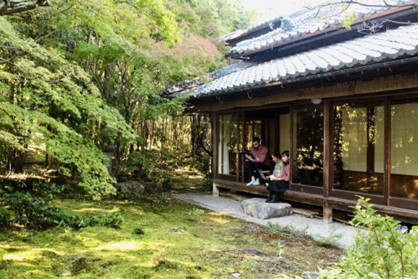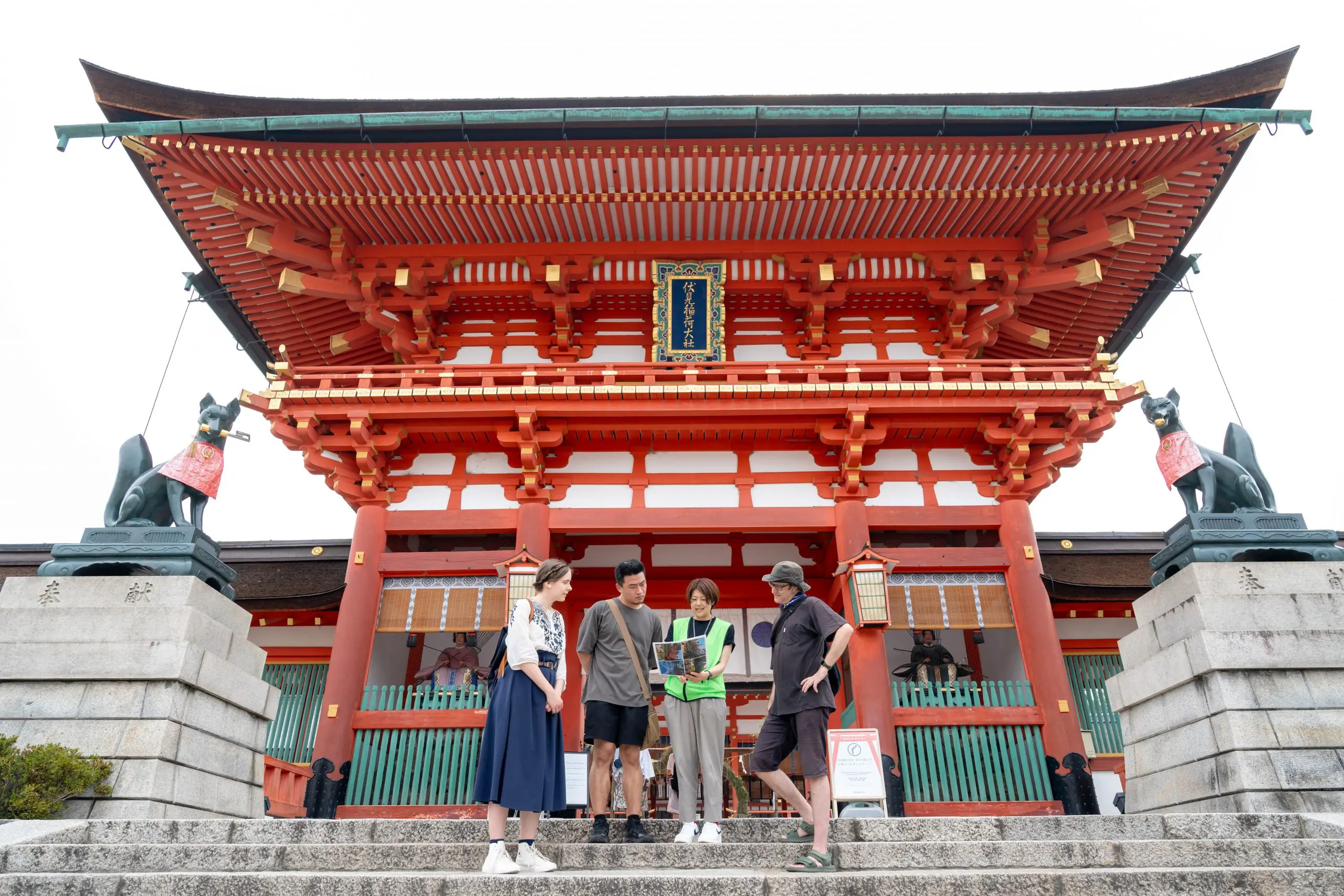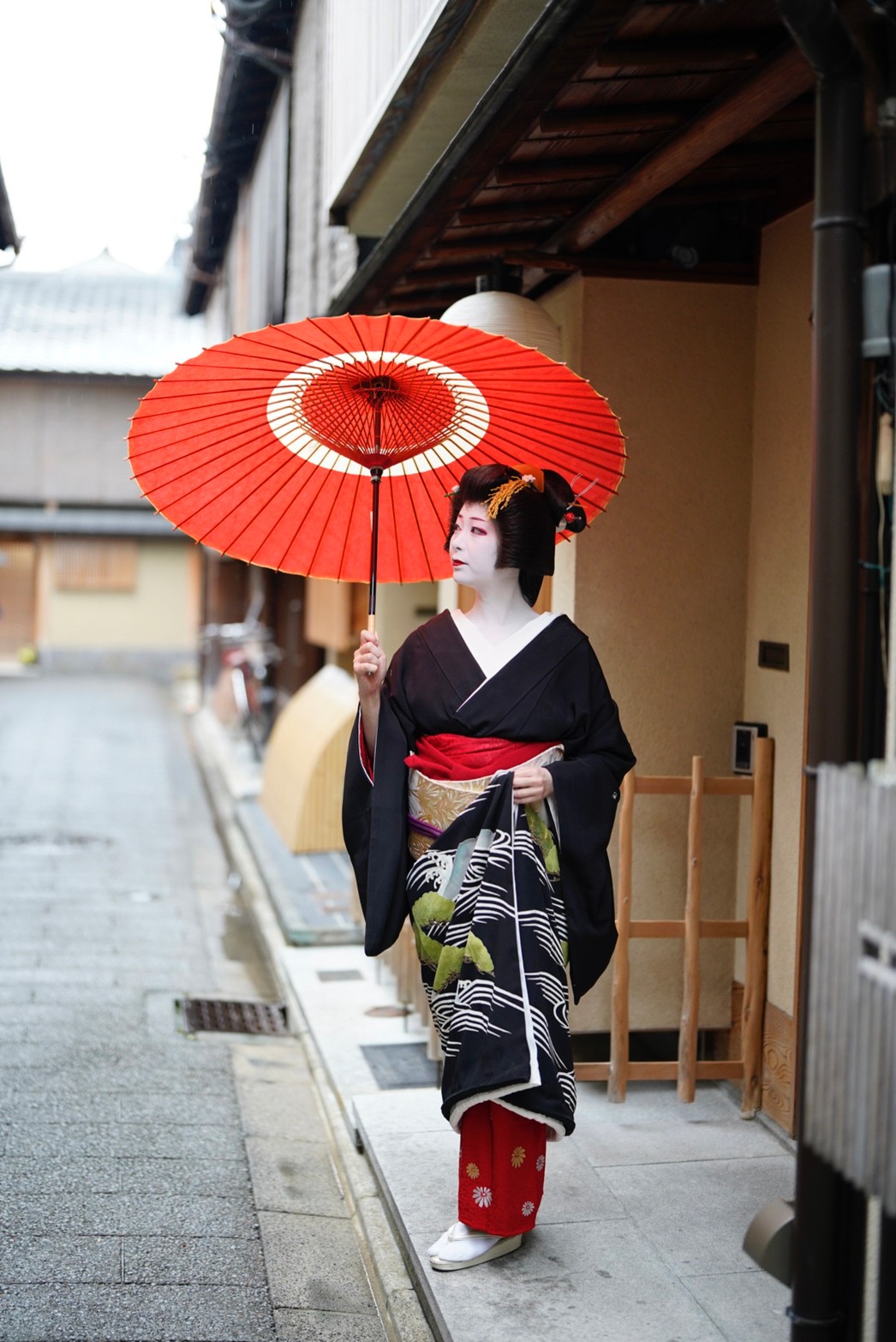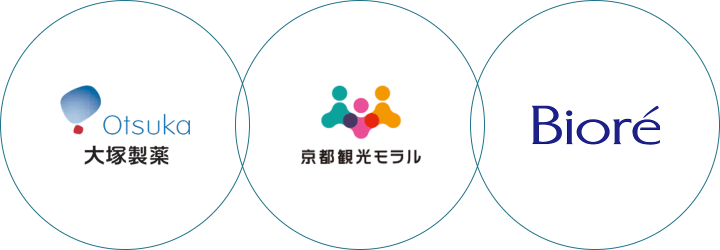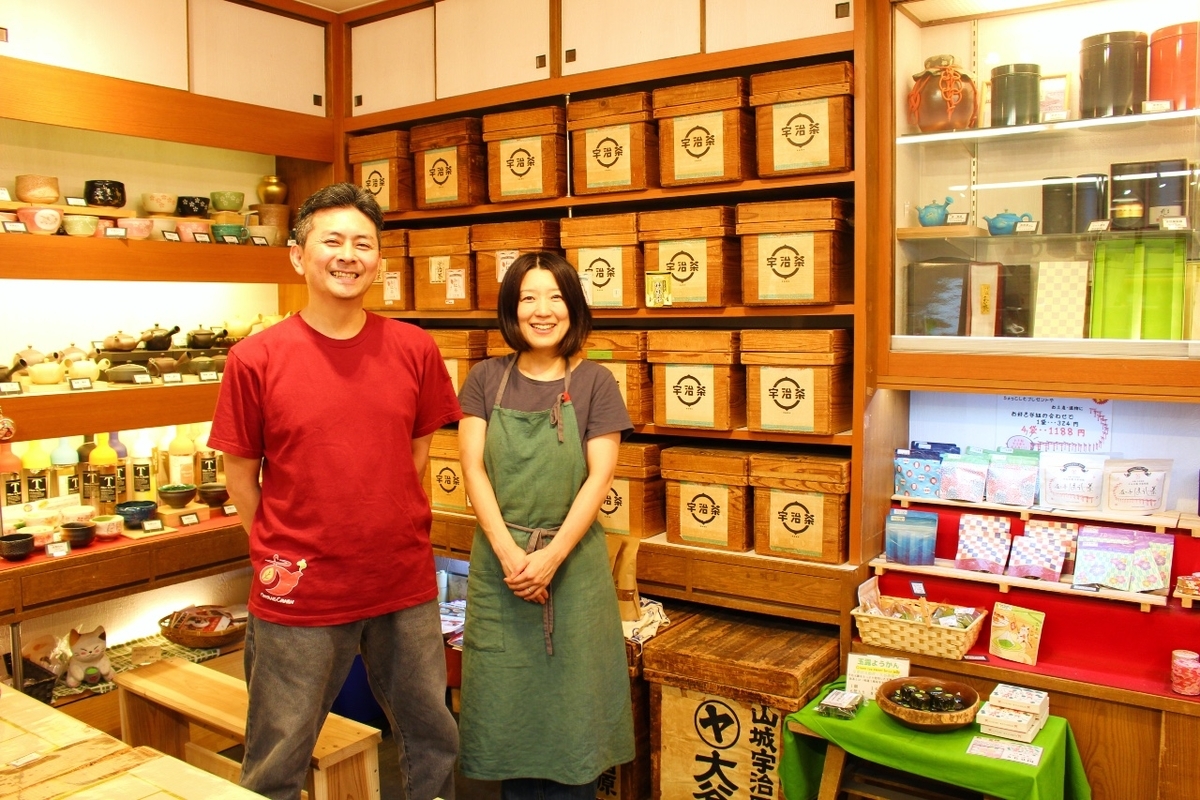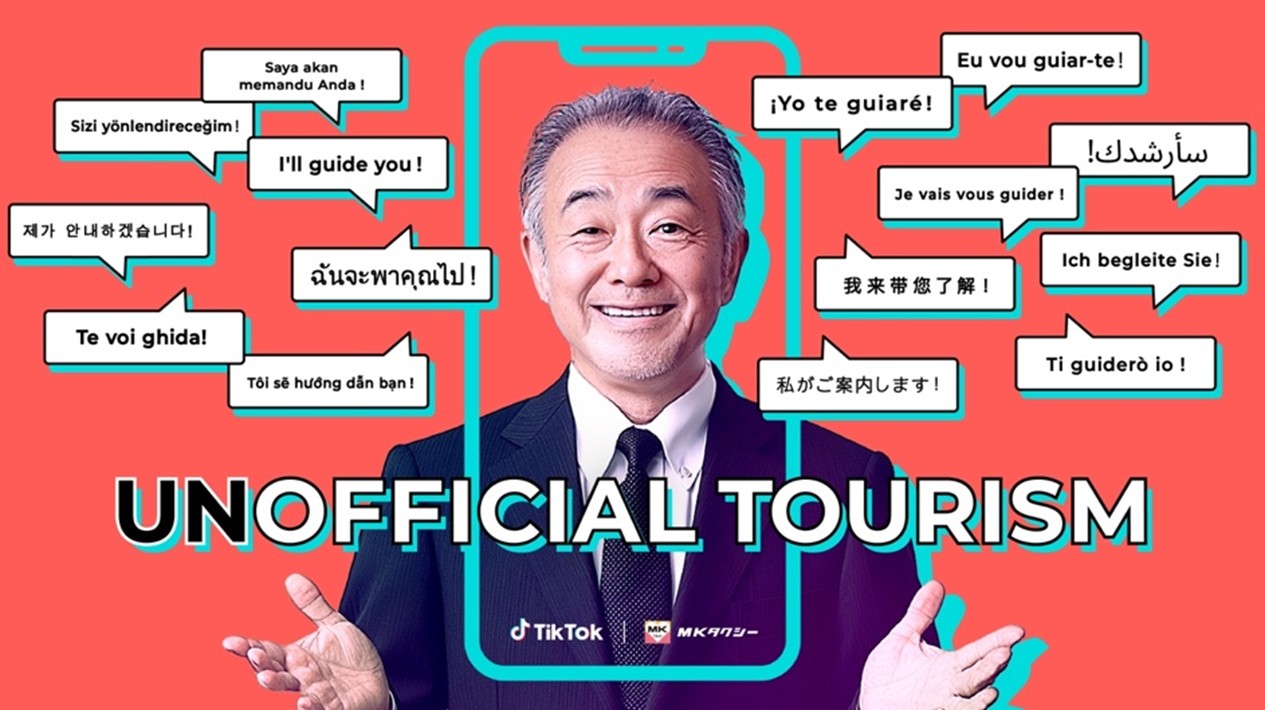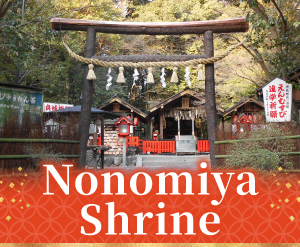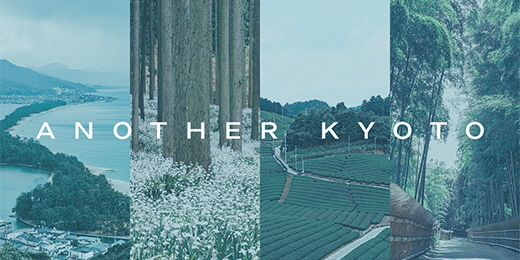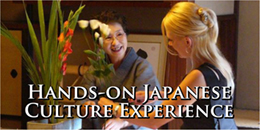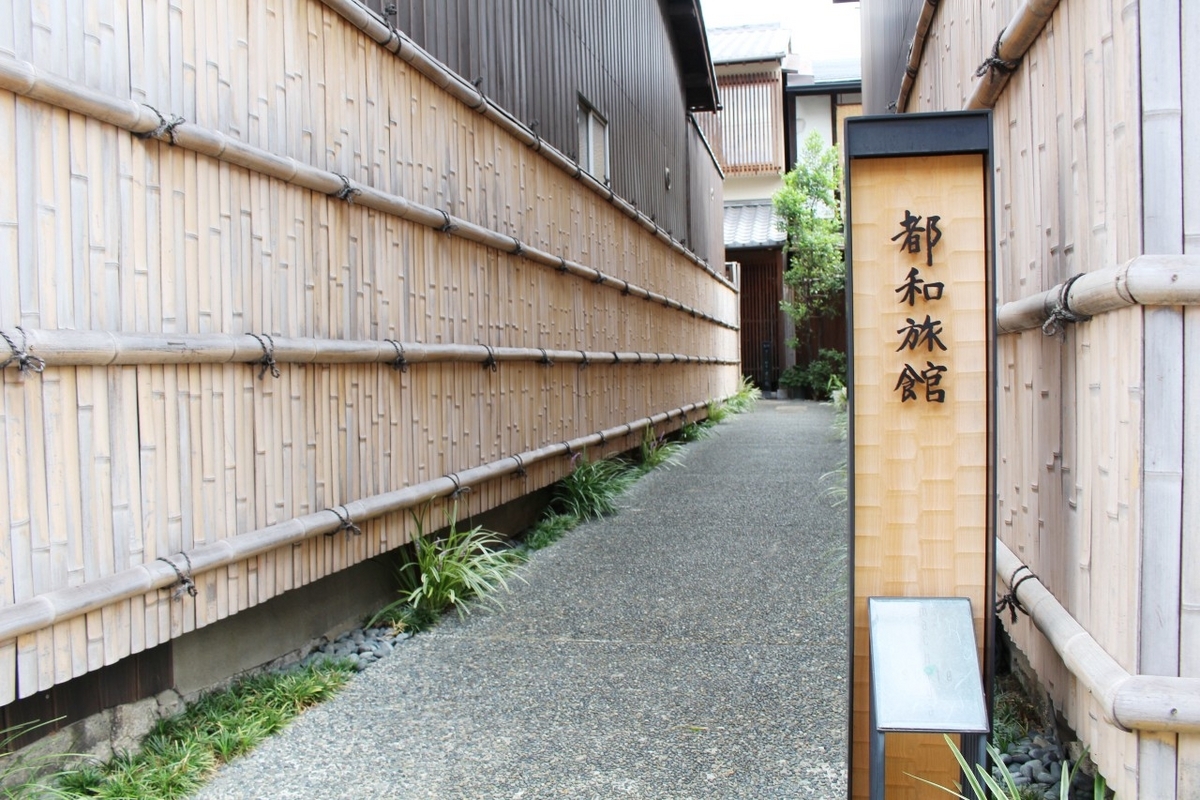
The Kyoto Tourism Etiquette Project is being promoted by the City of Kyoto. Towa Ryokan in the city’s Shimogyo Ward has been recognized as an “excellent business promoting sustainable tourism in Kyoto” and is making the most of its role as a Japanese-style inn by offering a variety of services to convey Japanese culture not only to visitors to Kyoto, but also to young people and local residents.
Renovated to add a new tearoom and accessible facilities
Located about a 7-minute walk from Kyoto Station, as you enter a street lined with traditional Machiya town houses, you will see a narrow open space surrounded by a bamboo fence that seems to be beckoning you inside.
“Originally, the main entrance was facing the street that cars use, but we closed it off so that people could pass through the open area that had been used exclusively for the villa,” says Yoshiko Ota, proprietress of Towa Ryokan.
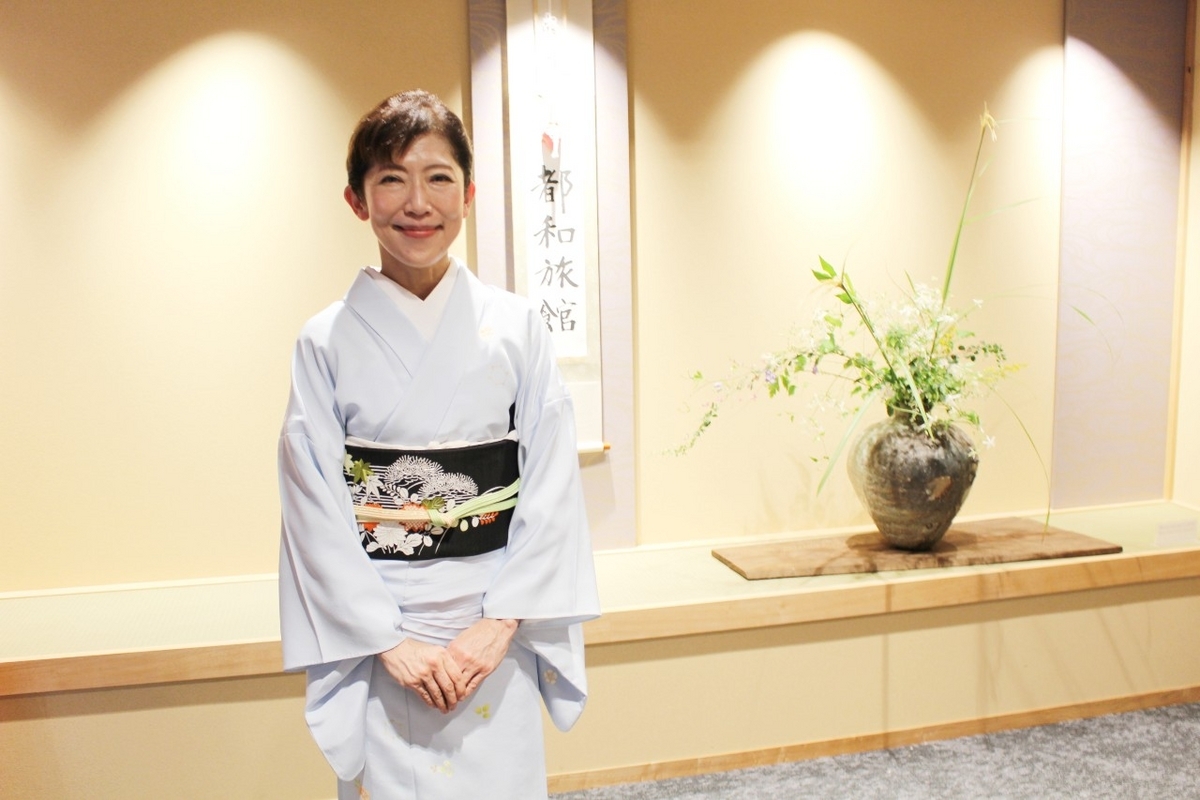
With the onset of the COVID-19 pandemic and the massive hit that the tourism industry suffered, Ota saw it as an opportunity to reevaluate her business, deciding to place more focus on hospitality centered around the “Chanoyu” (tea ceremony) that she had long envisioned and adding a new tea room in the villa.
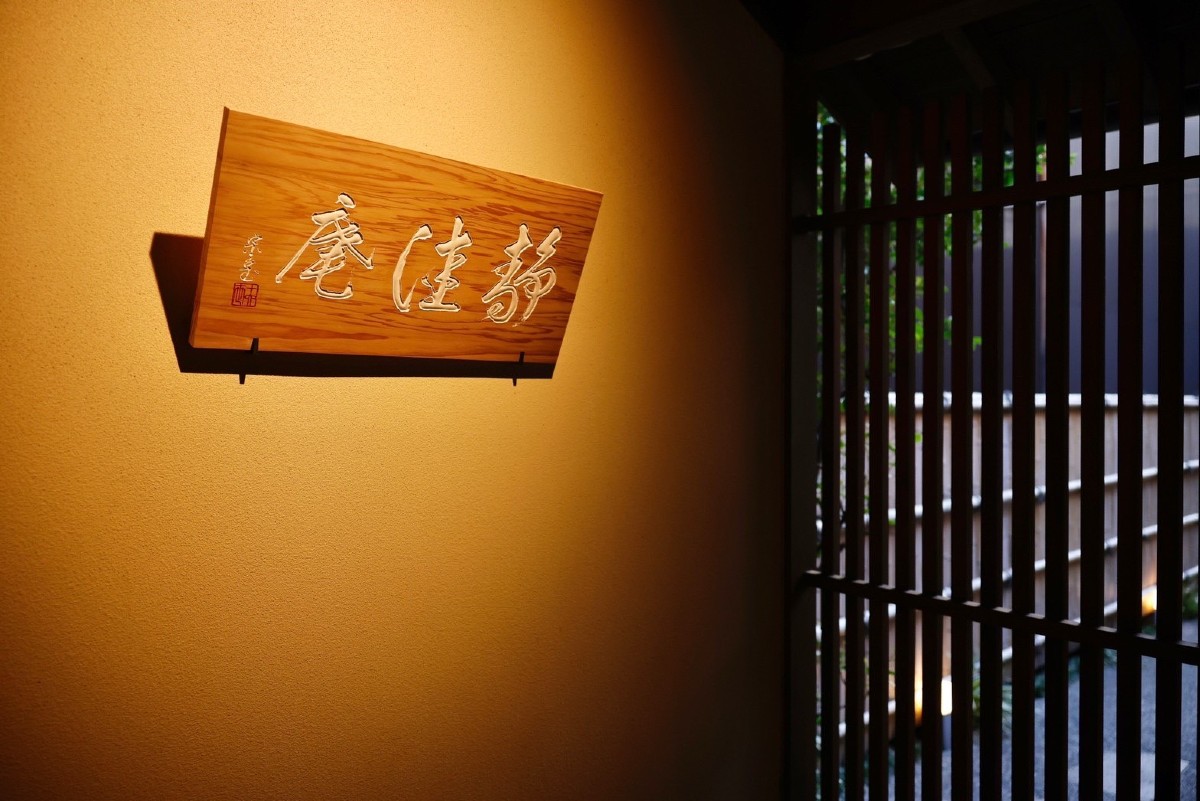
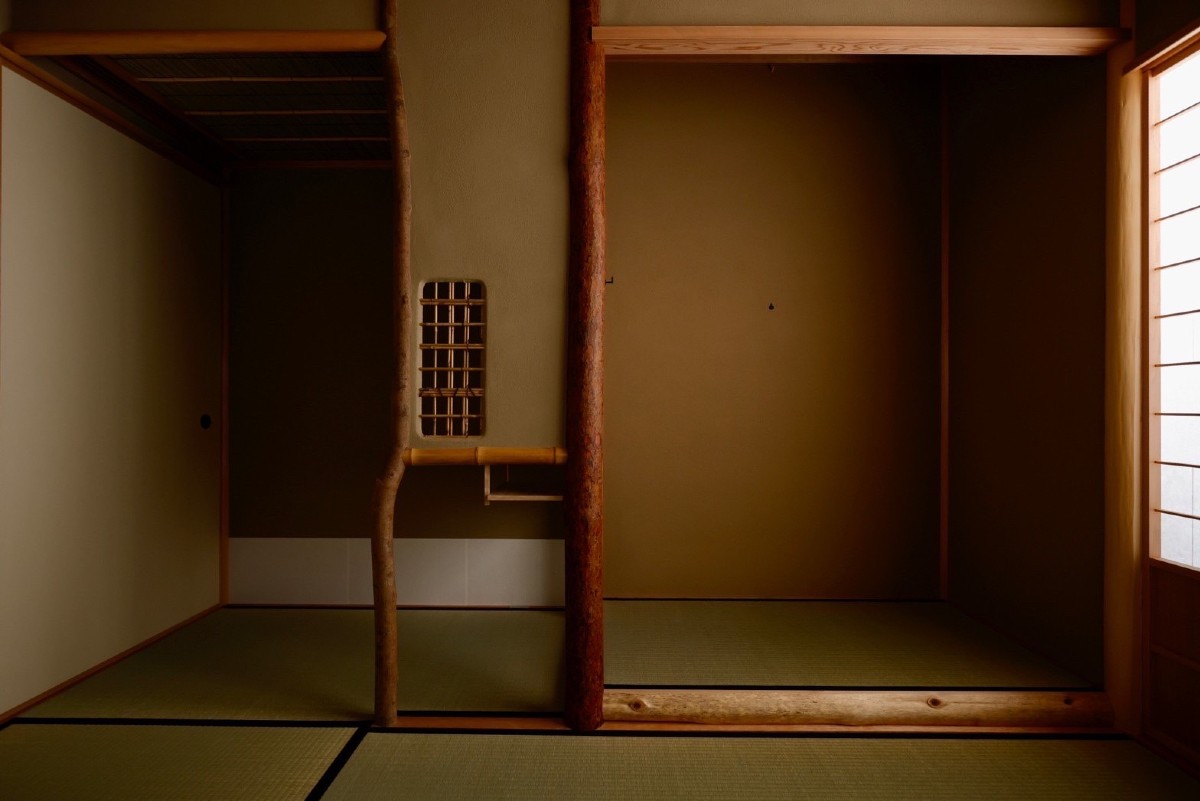
Photo: Yukiyo Daido
“We get a lot of business from young people and students on school trips,” says Ota, “and many of them tell us that they don’t have Japanese-style rooms in their homes, so they’re at a loss as to how to behave on the tatami mats. Also, with so many people visiting Japan from abroad, we thought that if they’re going to stay at a ryokan, our role can be to convey to them a bit of Japanese spirit.
People tend to think of Chanoyu as something very formal and hard to get into, but Japanese spirit is actually a very gentle thing in which people care for one another, so my hope is that people can come here and experience it without any hesitation.”
Chanoyu tea ceremonies combine numerous aspects of Japanese culture, including art, crafts, architecture, and history, making them a perfect fit for the type of hospitality between host and guest, which is at the core of the world of tea, that the inn provides in its services to travelers.
Another thing that visitors will appreciate is that the renovations have made the facility more accessible. As a “Kyoto Universal Sightseeing Navi” certified business, the inn has been accepting reservations by fax and paper for quite some time, and it now offers four guestrooms suited for people with hearing disabilities, using flashing lights to notify guests of visits by staff, as well as barrier-free restrooms. Towa Ryokan has also been certified as having a “Barrier-Free Mindset” by the Japan Tourism Agency.
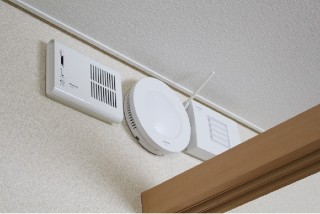
Lighting installed in guestrooms to indicate visits by staff
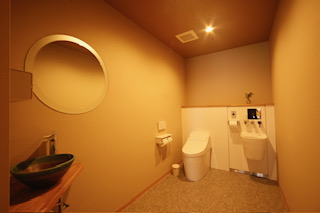
Barrier-free restroom Photo provided by: Towa Ryokan
Barrier-free accessibility is becoming the norm in regular hotels, but it is not yet widespread in ryokans, so Towa Ryokan decided to perform renovations that would allow disabled and elderly guests to enjoy the unique qualities of a ryokan without inconvenience.
As part of the team’s efforts to think about everything they could do to become a user-friendly ryokan, they also changed the name from the previous “Nagomi Yado Towa”, putting the word “Ryokan” back in the name.
Vegan Meals Inspired by Vegetarian Buddhist Cuisine Unique to the Hongwanji Temple Area
Conveniently located near Kyoto Station, the inn also provides convenient access to Kyoto Aquarium, Kyoto Railway Museum, and the Costume Museum, based on the theme of the classical Japanese literary work “The Tale of Genji”. With a history spanning more than half a century, Towa Ryokan has changed the notion of what a traditional ryokan can provide as it has welcomed so many tourists over the years.
In addition to the main building, they are actively engaged in pioneering initiatives such as renovating Machiya townhouses in the area and renting them out as stand-alone buildings. The purpose of this renovation was to install a tearoom in the villa. The plaque in front of the tearoom reads “Seika-an”. It was written in calligraphy by Soshitu Sen, headmaster of the Urasenke, school of tea ceremony.
Ota is also a longtime tea ceremony practitioner, and she used the time she had during the COVID-19 pandemic to create opportunities for employees who wanted to learn about tea ceremonies.
Reflecting on this, Ota says, “It takes a lot of manpower to incorporate Chanoyu into the services we provide here. If we hold a tea ceremony here, it means we also have to separately prepare Chakaiseki (light meals served before the ceremony) and other time-consuming dishes. It would have made no sense for me to do it all on my own, so I was quite grateful for the understanding and cooperation I received from the employees and our head chef.”
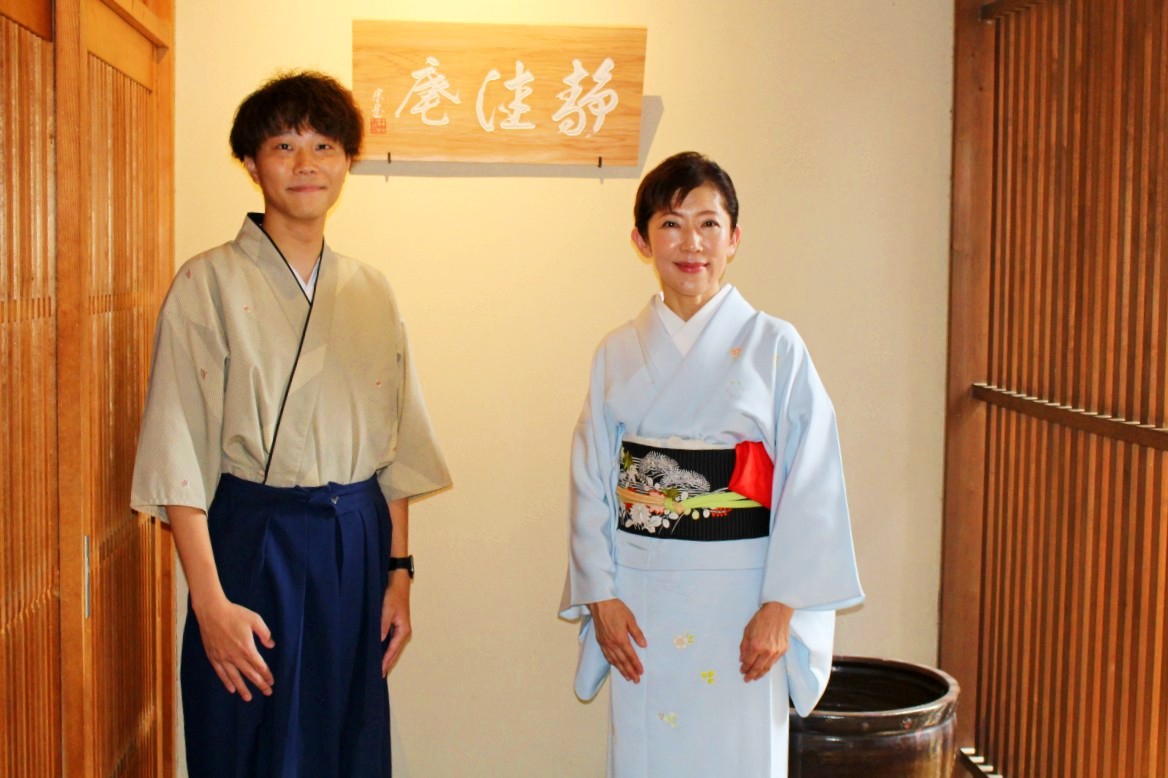
Mr. Toyama, the current manager of the ryokan, moved there because of his love of ryokans, and began practicing tea ceremonies there. At ryokans, which emphasize one-on-one hospitality, the etiquette and knowledge gained from the tea ceremony practice are said to be very useful in enhancing the quality of the hospitality they provide.
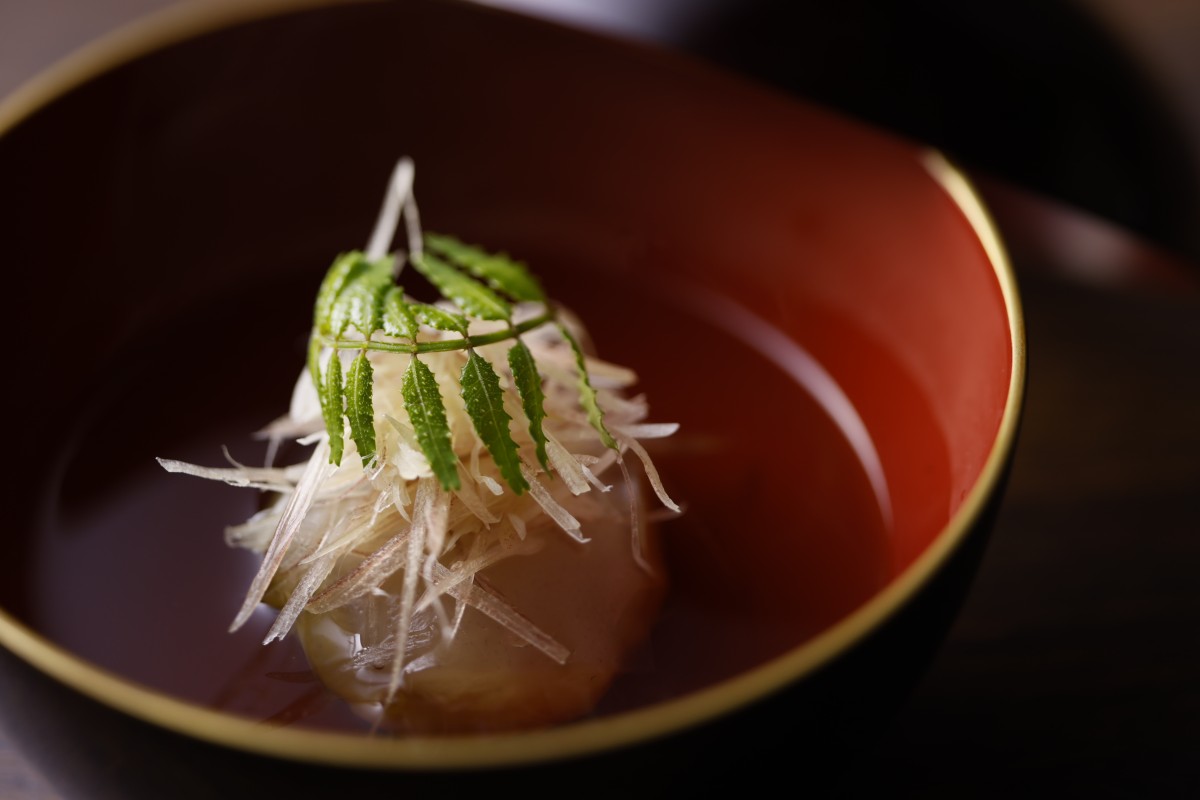
Photo provided by: Towa Ryokan
Furthermore, during the COVID-19 pandemic, they also started offering lunch and dinner separate from the lodging they typically provide, and their “vegan cuisine” in particular received high praise on travel websites.
“We started offering vegan meals in response to requests from overseas customers, but it didn’t really start on such a large scale,” says Ota with a smile.
Being located in the area between the Hongwanji temples on the east and west sides of the city, the inn was inspired by the strong culture of “Osai” and “Shojin Ryori”, types of vegetarian food eaten after Buddhist memorial services in the area. As the meals they offer can be enjoyed without the seriousness of typical Buddhist vegetarian meals, they are proving to be popular with both vegans and also young people who are just starting to learn about Kyoto’s food culture.
Increasing both customer satisfaction and worker motivation
In addition to these renovations, for the past decade or so, Towa Ryokan has also been registered as a Zero Leftover Food Promotion Shop, as well as a Support Station for those attempting to return home during a disaster and Temporary Shelter. They have even created their own map of restaurants in the neighborhood to give to their guests with the aim of promoting and revitalizing local consumption.
Ota believes that actively participating in such initiatives not only improves customer satisfaction and contributes to the community, but also helps to motivate their employees.
If there are more employees who share the same commitments and attitude as the ryokan and say, “This is why I want to work here,” the quality of service will inevitably improve, and that will come back to the visitors in the form of quality hospitality. The creation of this kind of virtuous cycle may be one of the roles that ryokan can play in the Kyoto tourism that Ota is trying to realize.
In addition to meal plans that let you enjoy Kyoto cuisine, as well as accommodation plans such as “An Evening of Kyoto Dance and Cuisine with Maiko”, Towa Ryokan has plans to make effective use of its tearoom, not only for employee practice, but also to give visitors tea ceremony experiences, host tea parties, and hold a monthly after-dinner event in which overnight guests gather and are shown hospitality.
“We hope to make these activities available not only to our overnight guests but also to local Kyoto residents and young people,” says Ota, expressing her high hopes for the future.
More information on the Towa Ryokan
[Kyoto Guidelines for Sustainable Tourism] Best Practice Case Examples
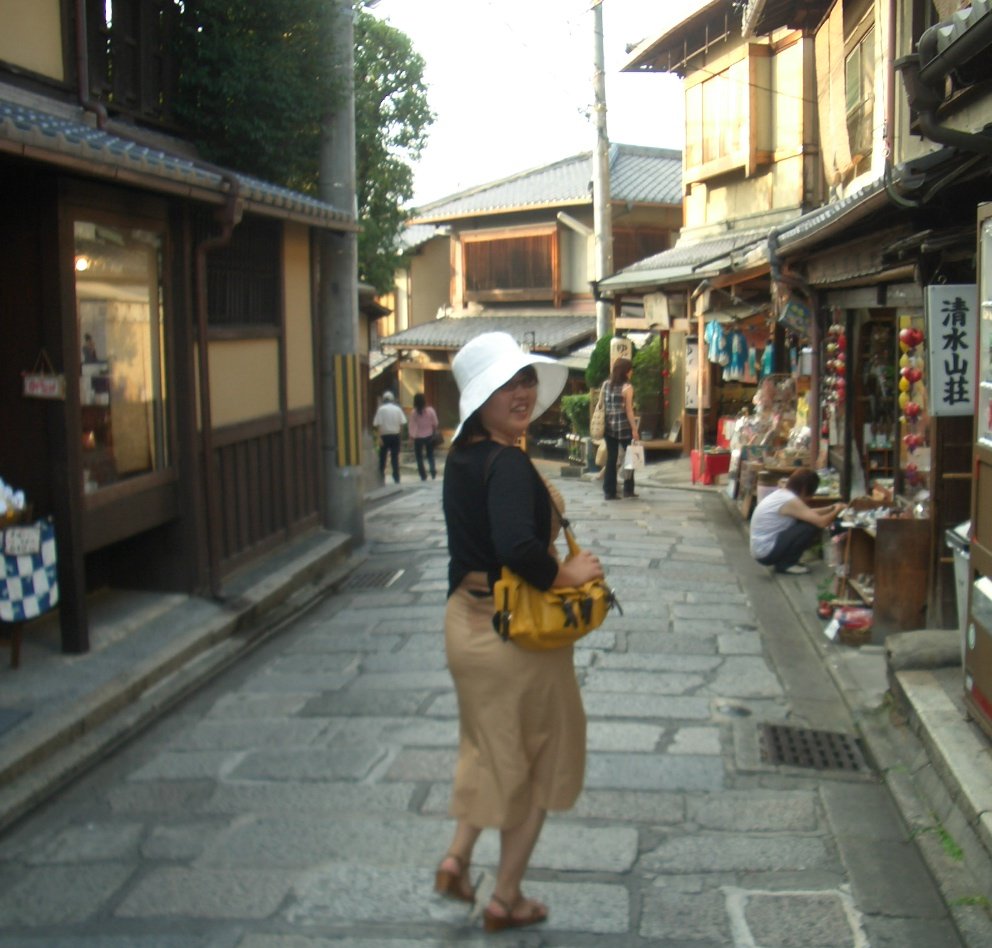
Article Author
